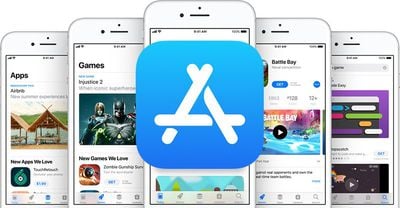When Apple has to make a difficult decision regarding an app in the App Store, its fate is determined in a meeting of a group called the Executive Review Board or ERB, led by Apple marketing chief Phil Schiller.
The detail was shared in a CNBC report on how the App Store works, which gives an inside look at Apple's App Store review team.

The Executive Review Board meets once per week and discusses controversial apps or iPhone apps that might be infringing on App Store guidelines, and it has the final word on whether an app can stay on the store or if it's going to be removed.
The ERB also creates the policies for Apple's Worldwide Developer Relations department, otherwise known as the App Review team that looks over every app submitted to the App Store. Last year, the ERB was the team that decided to ban the controversial Infowars app from the App Store for violating Apple's content policies.
Apple runs multiple App Review teams around the world, and according to CNBC, recently opened up new offices in Cork, Ireland and Shanghai, China. Over the course of the last few years, hiring for the team has ramped up.
People on the app review team are paid hourly, have employee badges, and receive healthcare, like any other Apple employee with Apple opting to use a full in-house team rather than relying on contractors. The main App Review team is based out of an office in Sunnyvale, California, which is close to Apple's Cupertino campuses.
According to CNBC, new hires start out on iPhone apps, but as reviewers gain more experience, are able to evaluate apps with in-app purchases and subscriptions as well as Apple TV and Apple Watch apps. Each reviewer claims a batch of apps using a web portal, then checks over the app using an iPad (or Apple Watch or Apple TV for those apps). The app is compared to Apple's App Store guidelines, and reviewers decide whether to accept, reject, or hold the app.
Reviewers are expected to get through 50 to 100 apps per day, and evaluating most apps takes a short amount of time. Number of apps reviewed per hour is tracked by Apple, and they're also evaluated on whether or not review decisions are later overturned.
When an app is rejected, developers can appeal to the App Review Board, which is separate from the Executive Review Board, to get the decision overturned. Several appeals may eventually send an app to the ERB, though. Most apps are rejected for common reasons, but edge cases or apps that are publicly sensitive go to Phil Schiller's ERB for more careful evaluation.
Apple doesn't give apps from major companies special treatment, according to CNBC, and all apps are required to go through the same exact review process.
For more on how the App Store review process works, make sure to check out CNBC's full report.






















